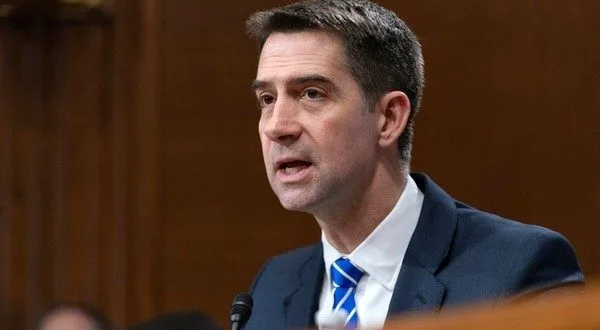
Senator Tom Cotton (R-Arkansas) and Senator Kristen Gillibrand (D-New York) today reintroduced the Living Donor Protection Act, legislation that will protect the rights of living organ donors. The Living Donor Protection Act would ensure living donors do not face discrimination from insurance companies, codify Department of Labor (DOL) guidance that covers living donors under the Family Medical Leave Act (FMLA) in the private and civil service, remove barriers to organ donation, and provide certainty to donors and recipients.
Co-sponsoring the legislation are Senators Marsha Blackburn (R-Tennessee), Richard Blumenthal (D-Connecticut), Shelley Moore Capito (R-West Virginia), Chris Coons (D-Delaware), Dick Durbin (D-Illinois), Kristen Gillibrand (D-New York), Cindy Hyde-Smith (R-Mississippi), Tim Kaine (D-Virginia), Mark Kelly (D-Arizona), Angus King (I-Maine), Amy Klobuchar (D-Minnesota), Ben Ray Luján (D-New Mexico), Jeff Merkley (D-Oregon), Pete Ricketts (R-Nebraska), Jacky Rosen (D-Nevada), Jeanne Shaheen (D-New Hampshire), Tina Smith (D-Minnesota), Thom Tillis (R-North Carolina), Raphael Warnock (D-Georgia), Sheldon Whitehouse (D-Rhode Island), and Ron Wyden (D-Oregon). Representatives Jerrold Nadler (New York-12) and Don Bacon (Nebraska-02) are introducing companion legislation in the House.
“Organ donors make an extraordinary sacrifice so someone else can have a new chance at life,” said Senator Cotton. “The Living Donor Protection Act would encourage more donors to step forward by protecting them from adverse consequences like denial of coverage and job loss.”
“It’s a tragedy that so many people die while waiting for life-saving organ donations. We must do more to remove the barriers that keep Americans from donating,” said Senator Gillibrand. “The Living Donor Protection Act would help ensure that the individuals who are willing to save someone’s life through an organ donation can do so without worrying that they’ll face insurance discrimination or that they could lose their job as they recover. I am proud to be introducing this bipartisan legislation and will keep fighting to finally get it passed.”
“Our state is fortunate to have Nebraska Medicine, which has a robust living donor kidney exchange program, performing more kidney chains which involves anonymous donors donating to someone without a compatible living donor, than almost any hospital nationwide. However, some living donors are discriminated against when it comes to rates and provision of life insurance and disability insurance,” said Representative Bacon. “They also don’t always receive adequate time to recover from the surgeries related to their selfless gift. This legislation will help open the doors to more living donors so we can save more lives.”
“When an organ donor decides to donate one of their organs to someone else, they aren’t just saving someone’s life-they’re making one of the most selfless, difficult decisions anyone could ever make. The last thing they need in the midst of that challenging process is to be confronted by needless roadblocks or insurance discrimination,” said Representative Nadler. “These roadblocks can make it economically impossible for potential donors to make that choice and, simply put, they are costing lives. April is National Donate Life Month, and I’m proud to introduce the Living Donor Protection Act to bring awareness to this issue and knock down these needless barriers to lifesaving organ donation.”
Full text of the bill may be found here.
The Living Donor Protection Act would:
-Prohibit life, disability, and long-term care insurance companies from denying or limiting coverage and from charging higher premiums for living organ donors.
-Amend the Family and Medical Leave Act of 1993 to specifically include living organ donation as a serious health condition for private and civil service employees.
-Direct the U.S. Department of Health and Human Services (HHS) to update their material on live organ donation to reflect these new protections and encourage more individuals to consider donating an organ.
WebReadyTM Powered by WireReady® NSI










